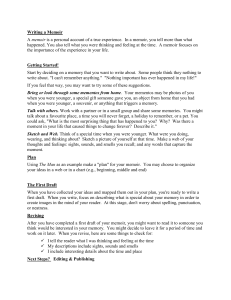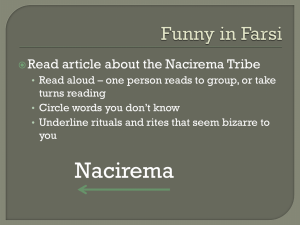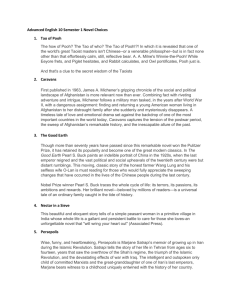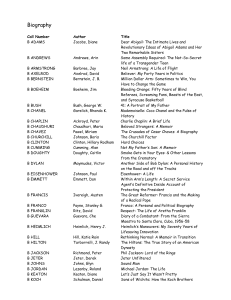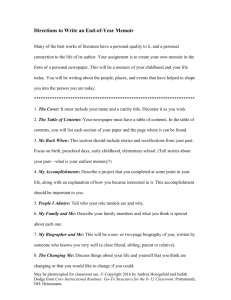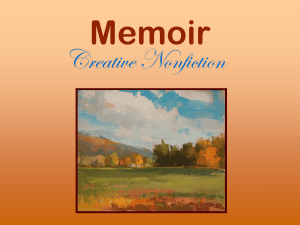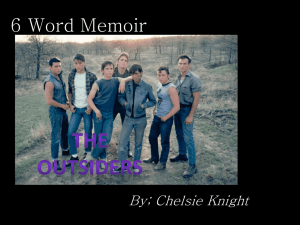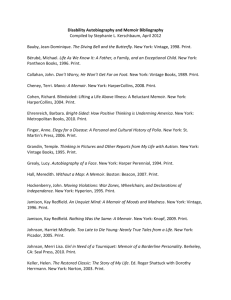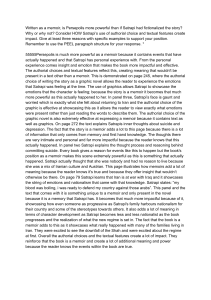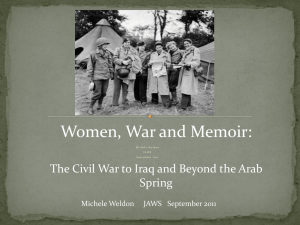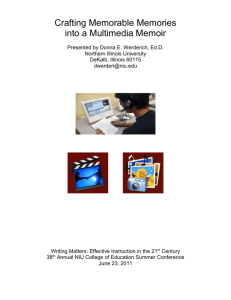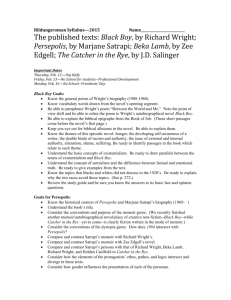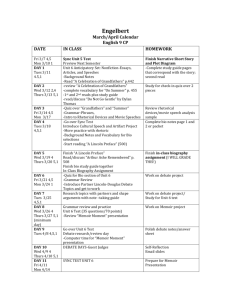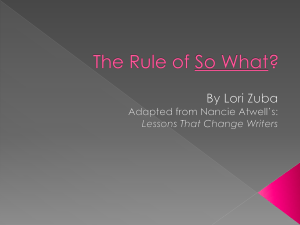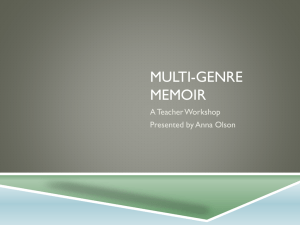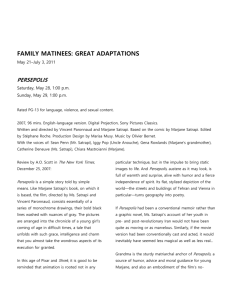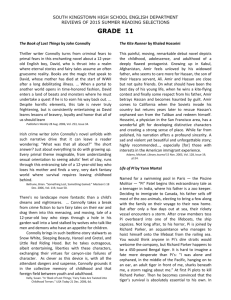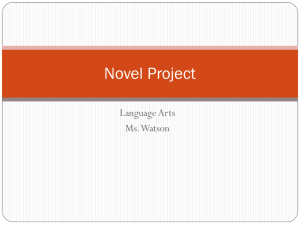Persepolis The Story of a Childhood by: Marjane Satrapi
advertisement
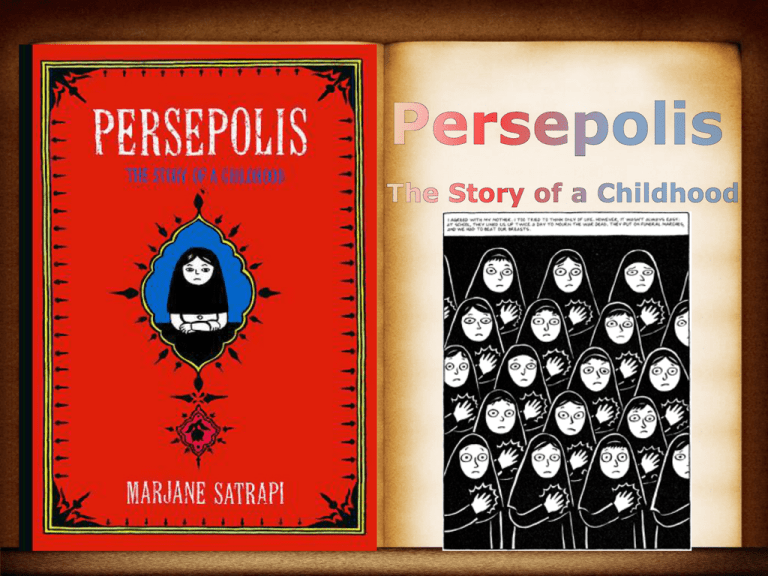
Summary • Persepolis is an autobiographical memoir of Marjane Satrapi’s life as a child during the Islamic Revolution in the late 1970’s. In the book, she discusses the changes in which she had to make in her life to conform to the new regime within her country, such as wearing a veil and not having the ability to own anything with Western influence. • This memoir depicts Satrapi’s childhood confusion and the extreme contradictions between her home life with her parents and her public life. Readability Persepolis is a unique read for students because… Readability This makes learning more fun for students, while they read they are able to visualize exactly what Marjane Satrapi witnessed growing up. Concept Map Different private and public life Societal Pressures Cultural Shift Adapting to change Child’seye view of changing society Growing up in the midst of war Motivation…. • “As for me, I sealed my act of rebellion against my mother’s dictatorship by smoking the cigarette I’d stolen from my uncle two weeks earlier.” • (page 117) Objectives • Display to students that reading can be a fun activity • Teach students that graphic novels are a great tool to make reading more fun • Students will be able to identify what a memoir is • Students will write their own memoir about a significant time in their lives • Students will be able to create their own version of a graphic story based on their memoir • Copies of “Persepolis” • Pens/Pencils/Marker s/Colored pencils • Notebooks • Drawing paper • And…an open mind! Procedures • Class will discuss their ideas of what a graphic novel is. • Read “Persepolis” • Write journal entries to reflect on the novel and the issues within the novel Graphic novels rule! • Each student will write a memoir about a significant event that happened within their life • Along with the written memoir, they will create a graphic representation of the memoir to emotionally connect to their memoir Discussion Questions Are there stereotypes with a graphic novel? Are they only comics? Could they tell a story just like a regular book? Do you think that Satrapi’s experiences and thoughts would have been different had she been older? How would you handle the challenges that Satrapi faced as a child? How would you feel if every book was a graphic novel? Would they be easier to read? Would you enjoy reading more? Language Arts Connection • Keep journals every night after reading through “Persepolis” and discuss the issues brought forth in the novel. Also, make sure to note how you would feel in that situation. • Write a memoir about a specific event in your life. This event can be good or bad and you must express your emotions through your writing about this event. • Using a scene from your memoir, make a graphic representation of the scene. Make sure that it correlates with the emotions within your writing. THE END!
